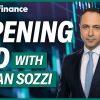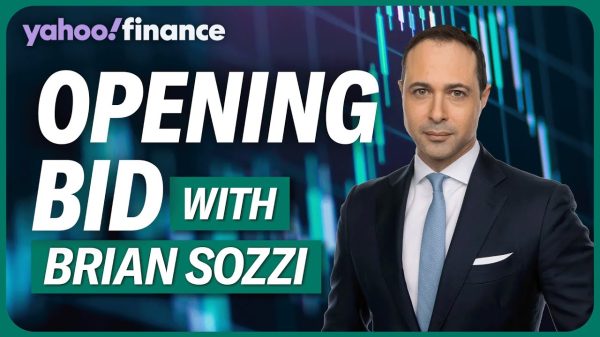A look at the day ahead in U.S. and global markets from Mike Dolan
The weekend’s Middle East shock adds another confusing twist to an already complicated global markets picture, but the initial jump in oil prices has been relatively modest so far as investors assess the geopolitical implications.
oil prices rose about 3% higher on Monday as Israel retaliated for Saturday’s shock attack by the Islamist group Hamas. Hamas fighters’ rampage through Israeli towns and a rocket barrage killed hundreds of people in the deadliest such incursion in decades.
With concern about a spillover over the long-running conflict to the wider stage, oil and other traditional global ‘safety’ plays caught a bid. Specific fears centred on oil supply implications if Iran were connected to the attacks and what it may mean for U.S. moves to cement closer ties between Saudi Arabia and Israel.
Saudi officials had reportedly told the White House on Friday they were willing to raise output next year as part of that proposed Israel deal. An increase in Saudi output would have helped to relieve tightness after months of supply cuts from key producers Saudi Arabia and Russia.
What’s more, any direct connection to Iran’s possible involvement would scupper any easing of sanctions there and affect an estimated 3% of world oil supply. The Wall Street Journal reported on Monday Tehran HAD helped Hamas plot the attack over several weeks.
But with so much in flux, the rise in crude was modest so far. At $85.25 per barrel, U.S. crude was only trading back where it was last Wednesday and year-on-year prices remain negative to the tune of 5%.
Small safety bids in gold and U.S. Treasury futures were similarly restrained. U.S. Treasury cash bond markets were closed on Monday for the Columbus Day holiday, even though the New York Stock Exchange and Nasdaq are open later.
Stock futures fell back about 0.5% ahead of the bell, paring about half Friday’s post-payrolls rally.
Tel Aviv share indices, fell nearly 7% on Sunday, led by a 9% drop in banking shares, and were edged further lower on Monday. The shekel hit a near 8-year low, prompting the Bank of Israel to promise up to $30 billion in intervention to support the currency.
But U.S. dollar more generally was a clear winner – both on the geopolitical tension and the fallout from Friday’s blowout U.S. employment report.
U.S. jobs increased last month by a third of a million, the most in eight months and almost twice forecasts. The report pointing to persistent labor market strength that gives the Federal Reserve license to keep interest rates higher for longer even though wage growth is slowing too.
The ‘goldilocks’ scenario of brisk payroll growth and modest wage rises was enough to see stocks rally hard by Friday’s close even though Treasury bond yields continue to stalk 16-year highs. The dollar perked up today.
A sustained oil price rise from here could aggravate the inflation picture the Fed is negotiating – but could also drag on growth too. Fed futures show less than a 50% chance of another rate rise from here.
Elsewhere, China’s markets returned from the Golden Week break in downbeat mood, with the CSI300 in negative territory.
In Europe, shares in Britain’s ailing Metro Bank jumped after the lender struck a fundraising deal overnight to bolster its balance sheet following urgent weekend talks.
Metro announced a 325-million-pound ($396-million) capital raising exercise and a 600-million-pound debt refinancing on Sunday – a deal that would hand majority shareholder control to its biggest investor, Colombian billionaire Jaime Gilinski.
Key developments that should provide more direction to U.S. markets later on Monday:
* Columbus Day holiday – Federal government agencies shut but NYSE and Nasdaq open
* Annual meetings of World Bank and IMF commence in Marrakesh, Morocco
* U.S. Sept employment trends
* Federal Reserve Vice Chair for Supervision Michael Barr, Fed Vice Chair Philip Jefferson, Dallas Fed chief Lorie Logan and Bank of England policymaker Catherine Mann all speak
Read the full article here













